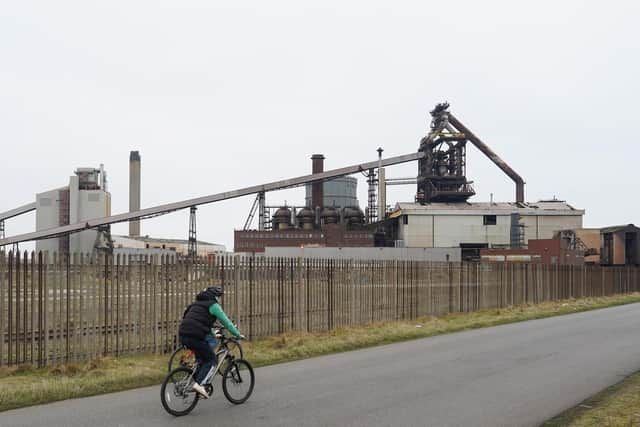Rishi Sunak's freeports plan 'not a magic bullet to create jobs', warns think-tank UK in a Changing Europe
A new report by UK in a Changing Europe says the key component of the post-Brexit economic strategy are not a "magic bullet" and are unlikely to lead to the sort of transformation the Government hopes for.
It says that evidence that freeports create additional jobs is unclear, and at best mixed, while there is a public cost of maintaining freeports which is exacerbated by the necessity of providing financial incentives for businesses to relocate to them.
Advertisement
Hide AdAdvertisement
Hide Ad

And the reports suggests groups that will benefit from freeports are businesses that relocate there and high net-worth individuals, though the areas could be a part of a broader industrial policy drawing on experience of enterprise zones.
They could be used to solve specific problems, the report says, such as attracting jobs to a lagging region, focusing them on a specific sector which is particularly struggling due to tariffs, or opening up new financing models for local authorities.
Freeports are part of a Government strategy and Richmond MP Mr Sunak has put them at the heart of the levelling up agenda and his plans for post-Brexit Britain. They are similar to free zones or ‘enterprise zones’, specifically targeted at those businesses who import, process and re-export goods.
Customs duty becomes payable only when the goods, possibly after processing, enter the domestic market. Other incentives on tax, planning and reduced red tape may also be available.
Advertisement
Hide AdAdvertisement
Hide AdMr Sunak said recently: “Our new freeports will create national hubs for trade, innovation and commerce, levelling up communities across the UK, creating new jobs, and turbo-charging our economic recovery.”
The Government has committed to creating at least 10 Freeports beginning in 2021, with at least one in every nation of the UK.
Multiple bids have already been submitted to the Government along the east coast alone, with South Yorkshire, the Humber and Teesport also throwing their hats into the ring.
There are more than 70 freeports in the European Union and freeports existed in the UK before 2012. Supporters of freeports argue that their effectiveness is reduced by EU rules on state aid and that leaving the EU means freeports will be able to provide greater opportunities for the UK.
Advertisement
Hide AdAdvertisement
Hide AdProfessor Catherine Barnard, deputy director of UK in a Changing Europe and one of the authors of the report, said: “If the Government thinks freeports are a magic bullet that will create hundreds of thousands of new jobs, bring billions of additional pounds to the Exchequer and radically transform an area it is mistaken.
“That is not to say they should not be created but the thought they’re going to transform the wealth and prosperity of this country is simply untrue. It will help the regions that get a freeport – but possibly to the detriment of those that don’t.”
Tom Lees, the director of the Northern Policy Foundation think-tank, said: ""It is well known that the vast majority of academics voted Remain in 2016 which sadly colours and influences the research they produce.
"Nobody has ever claimed freeports will be a 'silver bullet' and to do so would be naive or misinformed. Freeports are one type of intervention as part of a package that can help to create jobs, growth and encourage investment as can be seen from the 4,000 in existence around the world.
Advertisement
Hide AdAdvertisement
Hide Ad"The UK's model cherry-picks the best elements of international freeports and makes it work for our economy and needs which will reduce displacement risks while coming with the highest standards against money laundering and inappropriate use.
"There were very basic and limited freeports in the UK up to 2012 which are incomparable to the model currently proposed. A major difference is that the current approach will include tax zones with attractive incentives and benefits well in excess of Enterprise Zones for businesses to help our post-COVID recovery and levelling up.
"Many businesses we have spoken with find the UK's freeport approach attractive and look forward to creating new jobs, opportunities and securing inward investment that would have gone elsewhere."